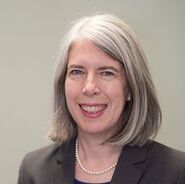President and CEO, Primary Care Coalition

Unlike their fictional counterparts -- Superman, who works for free, and Bruce Wayne, who is independently wealthy – few, if any, of our front-line workers could afford to put their lives on the line for less than a living wage, yet many of them did. That’s why it’s so critical now that we adequately compensate our health and social services heroes. There’s no excuse to do otherwise.
Recognizing this, the Montgomery County Executive proposed a 6% inflationary increase to nonprofit contracts for the upcoming fiscal year. This is most welcomed and appreciated. Yet, this increase doesn’t keep up with inflation, currently at 8.5% and still on the rise. PCC and our partners are advocating for a 10% increase in nonprofit contracts and a 20% increase in health safety-net organizations that have been hard hit by the pandemic. We hope you will join us in this request to the County Council.
In Maryland, community-based health and social services nonprofits employ 182,000 workers.[1] It is a predominantly women-led sector. The percentage of nonprofit executive directors who are female is 71%, and 31% are people of color.[2] Prior to the pandemic, there was a lack of understanding of the important role these organizations play, which may explain why nonprofits are often financially stressed.[3] The largest source of revenue for nonprofits in Maryland is government funding[4]. However, this often does not cover the full cost of providing the services, restricts how that funding can be best used and precludes building financial reserves to address critical challenges.
The last two years have proven that community resilience depends on nonprofit organizations and their employees. Despite being underpaid and underappreciated before the pandemic, nonprofit workers still managed to step up when the crisis hit. They provided health services, emergency food, and rental assistance while continuing their pre-pandemic missions of supporting children and families, caring for people with disabilities and the elderly, and providing services to the economically disadvantaged. But two years in, with rising inflation, burnout from traumatic work conditions, and competition from higher-paying private employers, nonprofits are struggling to find and retain staff.
Reversing that struggle is dependent upon paying these heroes fairly for the work that they do consistently and with deep caring to meet the health and social services needs of residents.
Please show your support for our front-line heroes by asking the County Council to support the requested increases for nonprofits and safety-net healthcare providers.
________________
- Maryland Nonprofits by the Numbers, November 2021
- Maryland Nonprofits Covid-19 Pandemic and Racial Equity Survey, November 2021
- Alliance One “A National Imperative: Joining Forces to Strengthen Human Services in America” 2018
- Ibid, Maryland Nonprofits Covid-19 Survey, November 2021


 RSS Feed
RSS Feed